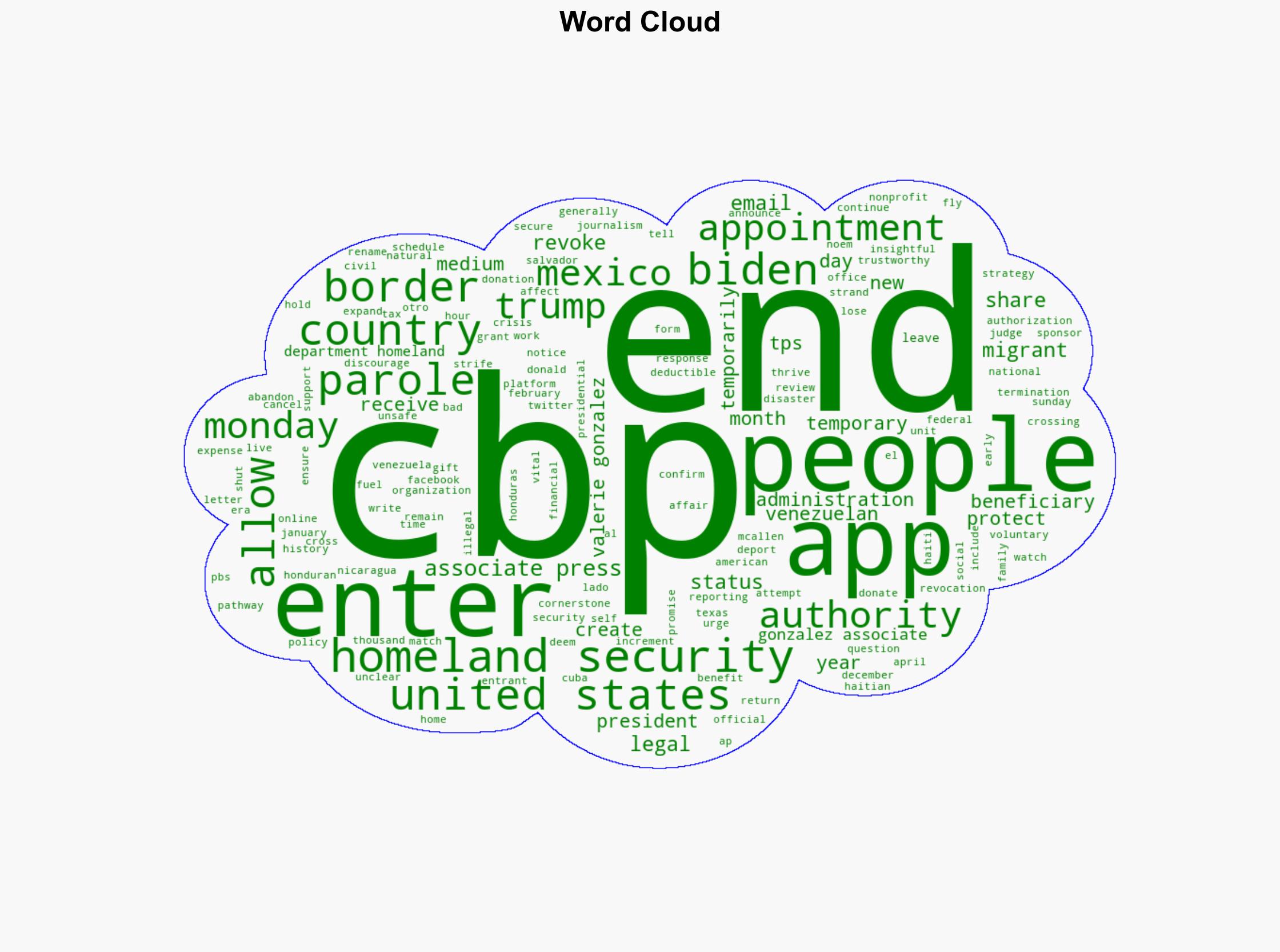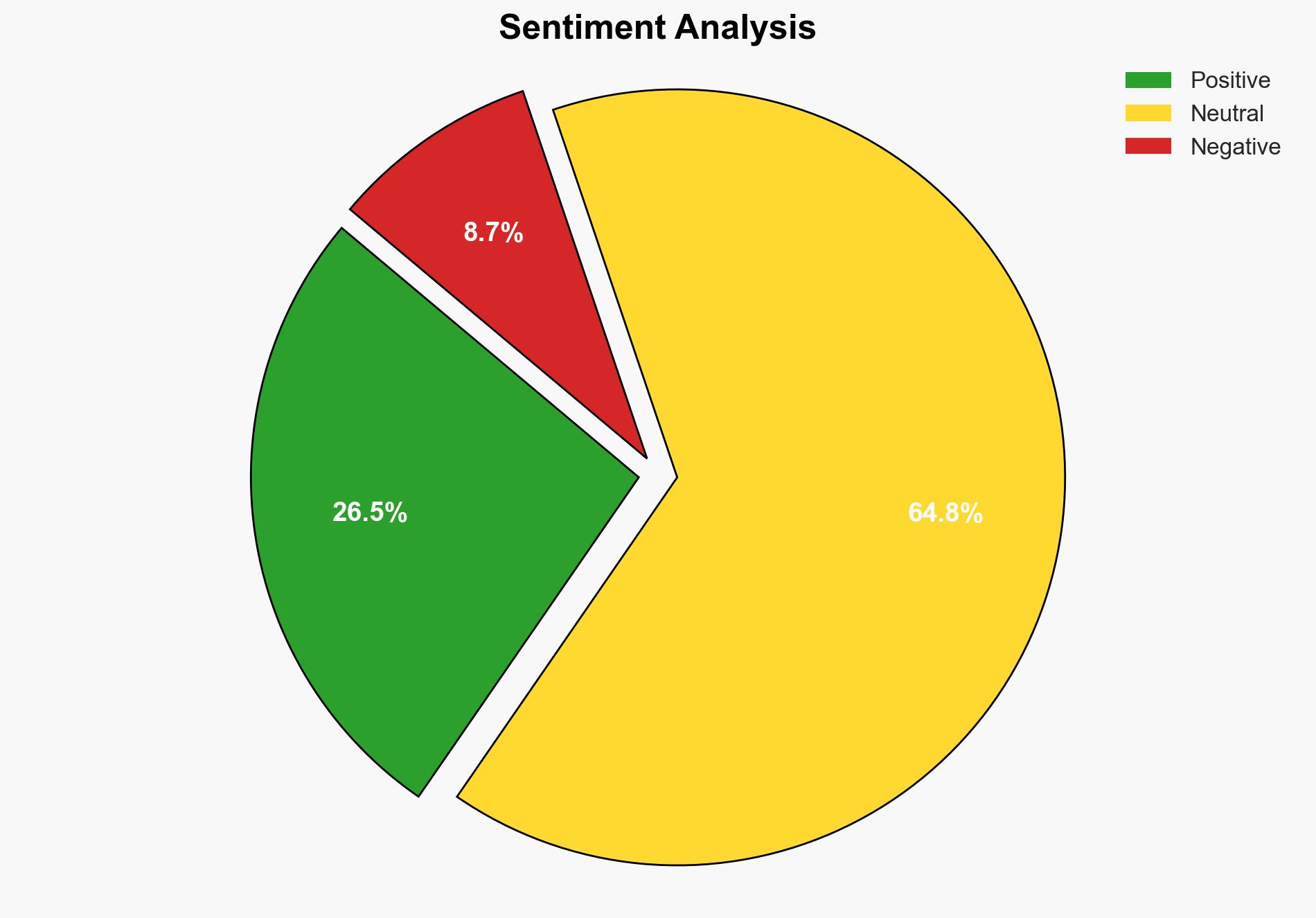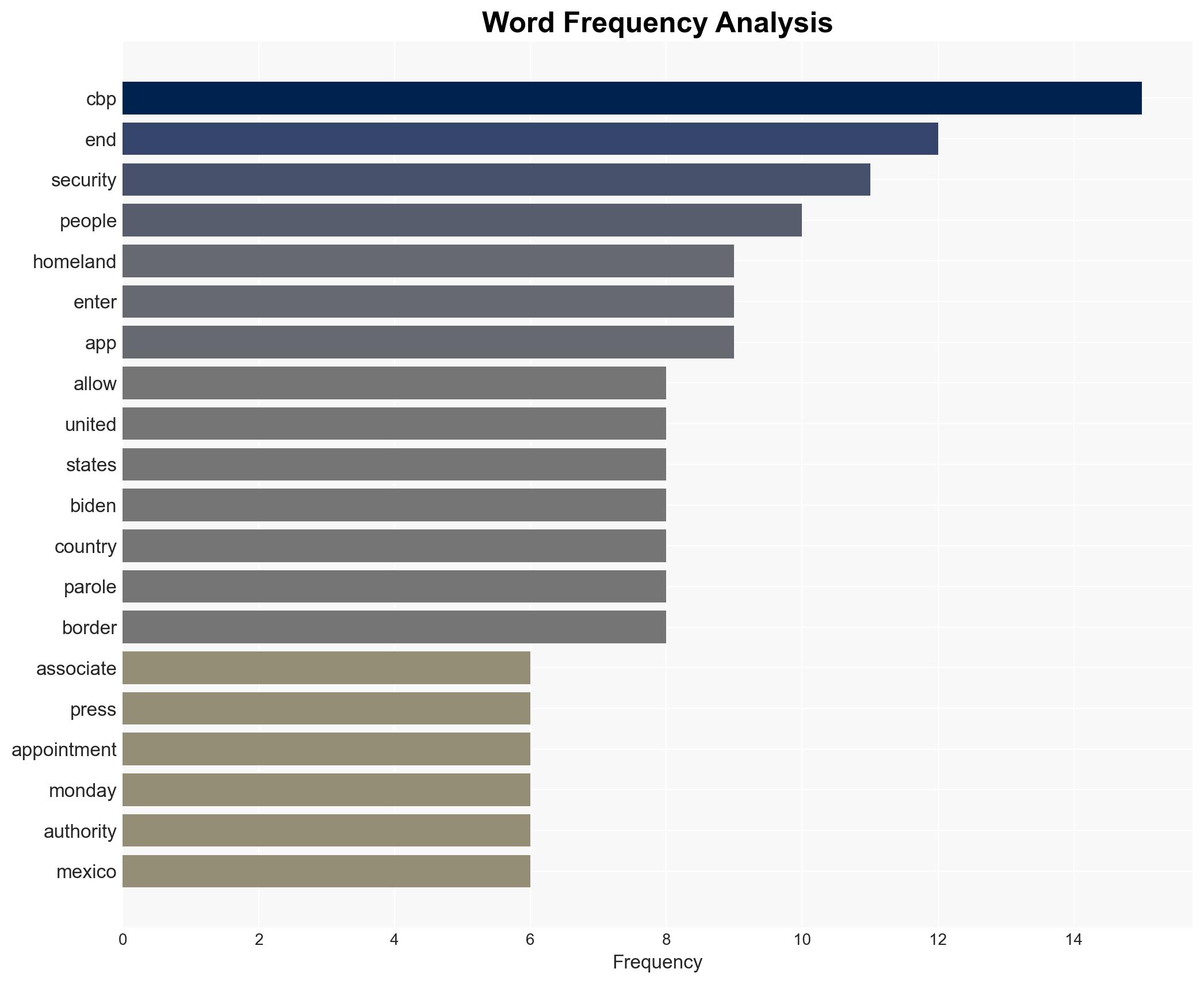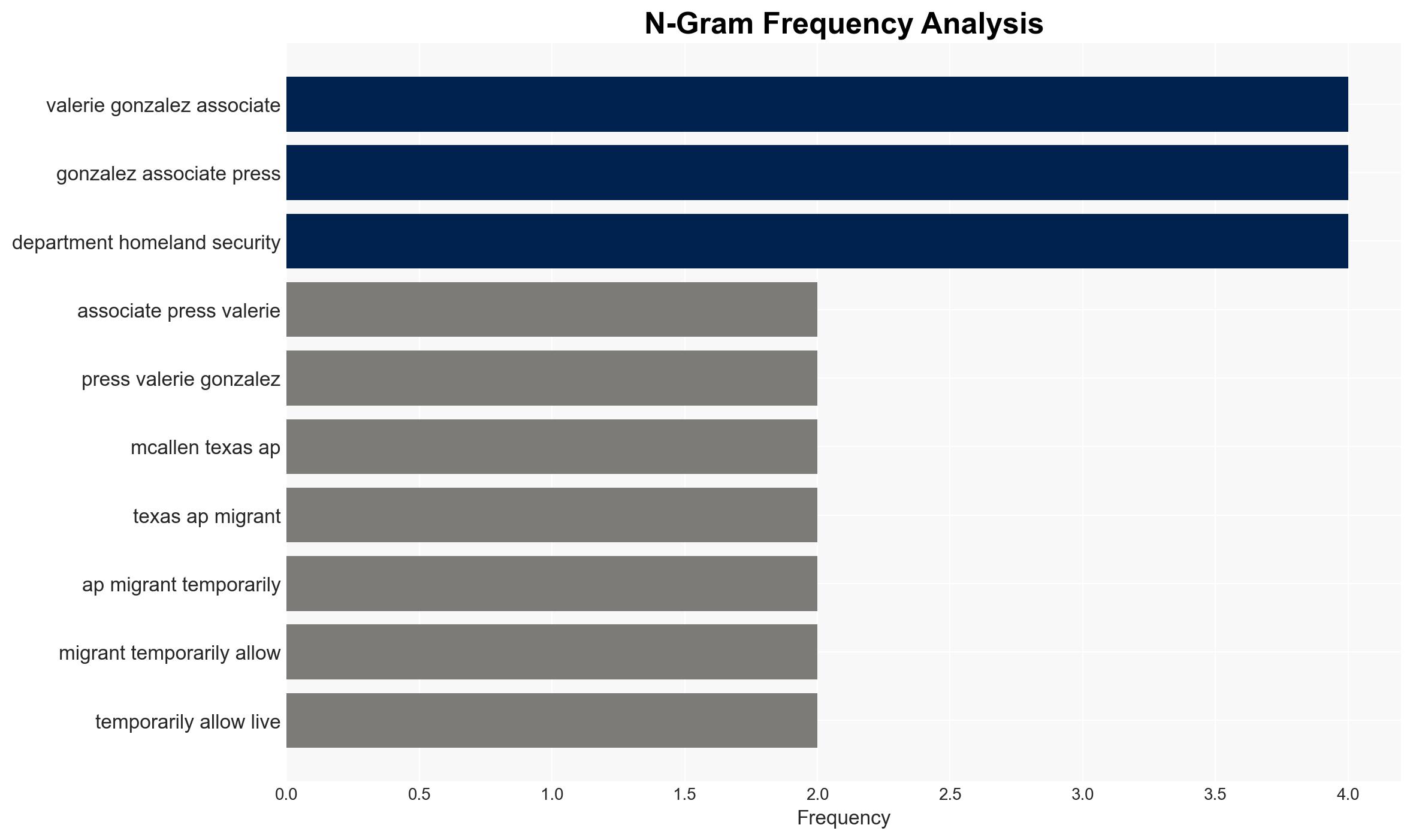Homeland Security revokes legal status for migrants who entered US using CBP One app – PBS
Published on: 2025-04-08
Intelligence Report: Homeland Security revokes legal status for migrants who entered US using CBP One app – PBS
1. BLUF (Bottom Line Up Front)
Homeland Security has revoked the legal status of migrants who entered the United States using the CBP One app. This decision affects individuals who were allowed to remain in the country under a temporary authorization known as parole. The move is part of a broader strategy to secure the border and protect national security. The implications of this policy change are significant, impacting thousands of migrants and potentially straining diplomatic relations with neighboring countries.
2. Detailed Analysis
The following structured analytic techniques have been applied for this analysis:
General Analysis
The revocation of legal status for migrants who entered the U.S. using the CBP One app marks a significant shift in immigration policy. Initially, the app was part of a strategy to create legal pathways for entry and discourage illegal crossings. However, the recent policy change aligns with a stricter immigration stance. The decision may lead to increased voluntary self-deportations and could deter future migrants from using legal entry methods. The termination of parole status raises questions regarding the future of similar immigration programs.
3. Implications and Strategic Risks
The revocation poses several risks:
- National Security: The policy aims to enhance border security but may strain resources as migrants seek alternative entry methods.
- Regional Stability: The decision could exacerbate tensions with countries like Honduras, El Salvador, and Mexico, affecting regional cooperation.
- Economic Interests: The sudden change may impact industries reliant on migrant labor, potentially leading to labor shortages.
4. Recommendations and Outlook
Recommendations:
- Enhance diplomatic engagement with affected countries to manage regional impacts and maintain cooperation.
- Implement technological solutions to improve border security and streamline legal entry processes.
- Consider regulatory adjustments to balance security needs with humanitarian obligations.
Outlook:
Best-case scenario: The policy effectively deters illegal crossings without significant diplomatic fallout, leading to improved border security.
Worst-case scenario: The decision leads to increased illegal crossings and deteriorates relations with neighboring countries, resulting in regional instability.
Most likely outcome: The policy will face legal challenges and adjustments, with gradual improvements in border security and ongoing diplomatic negotiations.
5. Key Individuals and Entities
The report mentions Valerie Gonzalez and the Department of Homeland Security. These individuals and entities are central to the developments discussed but are not detailed with roles or affiliations.





